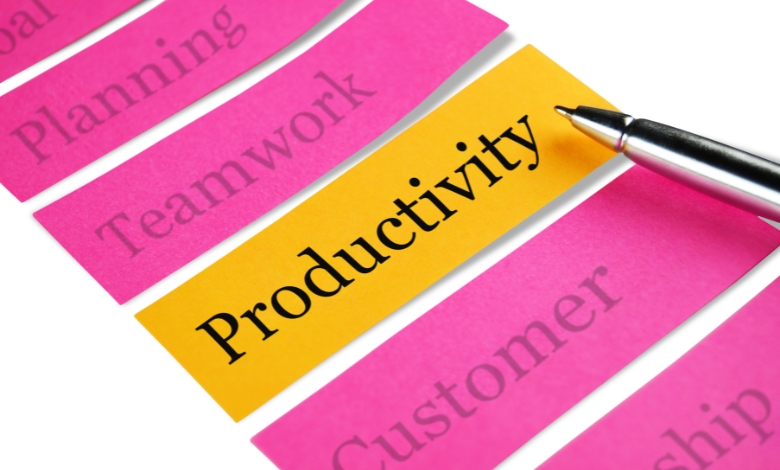Social media and productivity in the workplace: Find out is really social media can slow down workplace productivity.
Having started a startup from nothing, I have always understood the need for great work output in the business.
My staff and I used to be really proud of our accuracy and concentration.
We frequently claimed to have produced outstanding work and reached strict deadlines.
Motivated by our common vision and objectives, we put out great effort.
Over time, though, I observed a small but notable shift in our regular activities.
Little breaks—a quick glance at a notice, a quick check of personal emails, or a fast scan on social media during lunch—started it.
These activities first seemed innocuous, only a means of relaxation.
But gradually these behaviors became more frequent and lasted longer.
I remember a crucial project deadline being missed when a team member was too engrossed in an internet argument.
This was a wake-up call.
I began to pay more attention and found trends of diversion.
Once extremely focused employees now divided their time between online activities and job assignments.
Our output and efficiency suffered as our definition of personal time and work blurred.
Based on my experiences, I will discuss in this post five reasons social media can reduce workplace productivity.
We will examine how digital distractions compromise focus, lead to missed deadlines, and impede development.
Knowing these effects will enable one to design a more productive workplace.
Let’s get started.
Article Breakdown
What is Productivity in the Workplace?

Success depends on workplace productivity. It’s about effectively completing duties to satisfy corporate objectives. Productive employees value the business more and help to raise general performance.
In essence, workplace productivity is a measure of how effectively individuals apply resources, time, and abilities to accomplish desired outcomes. It entails organizing priorities, maintaining concentration, and timely delivery of outcomes. Being productive goes beyond mere busyness; it’s about working smart to meet objectives while preserving quality.
Productivity can be raised only by effective processes. Simplifying procedures and clearing obstacles enable businesses to maximize productivity and cut waste of time and money.
Enhance productivity by creating a positive work environment:
- Promote teamwork
- Encourage open communication
- Boost employee engagement
- Support collaboration
- Empower employees to do their best
1) Distraction: How Social Media Impacts Your Productivity

Our lives are surrounded with social media, both at home and at the office. Though it has numerous benefits, it can also reduce workplace output. Messages, alerts, and updates can often divert us from critical work.
Slowing us down and diverting our attention can come from browsing feeds and conversing online. This fragmented concentration reduces the quality of our job in addition to postponing it.
Social media can be addictive, hence it can be difficult to avoid the frequent update search. This requirement for likes and comments might lower general workplace efficiency.
Employees who spend more time on social media may miss deadlines, fall short of expectations, and witness a decline in their own creativity from split attention.
Steps to help:
- Notice how often you use social media
- Find ways to limit social media during work hours
2) Comparing Ourselves and Self-Esteem: The Negative Impact on Mental Health

Social media scrolling at work can cause comparisons and make one feel inferior. Watching the highlight tapes of your coworkers could make you believe you’re not doing enough. Your mental health may suffer as a result; anxiety and low self-esteem are common outcomes.
The pressure to live up to the irrational expectations of online personalities can be intolerable. Recall, what individuals publish is only a snapshot of their life—not the complete picture. Though none of them post about, everyone struggles.
During work, breaks from social media can assist to lessen these harmful impacts. Pay attention to your own, no matter minor accomplishments. Real value comes from inside, not from likes and comments on internet forums.
3) Cyberbullying and Harassment: Negative Impacts on Employee Well-Being

Workplace cyberbullying and harassment can severely compromise employee well-being. People’s confidence to engage in detrimental behavior they wouldn’t consider personally comes from social media’s anonymity.
Cyberbullying victims could feel stressed, alone, and depressed, which would influence their performance at their jobs. It generates a poisonous climate that encourages mistrust among colleagues.
Furthermore, affecting an individual’s mental health is the possibility of declining self-esteem and confidence resulting from continuous exposure to unfavorable online contacts. This disturbs team dynamics generally as well as the intended employee.
Companies have to act aggressively to quickly handle cyberbullying problems and provide a safe environment where staff members may disclose such events free from fear of reprisals.
4) Privacy Concerns: The Risks of Sharing Personal Info Online

At the workplace, privacy issues have grown to be really important. Employees who participate in social media activity during business hours could unintentionally expose their personal data. Online sharing of too much personal data might result in identity theft or illegal access to private information.
Companies also have to be careful what they post on social media since it could affect their reputation professionally and even endanger corporate security. People should be aware of the kind of material they post on the internet, particularly considering that they use social media at work.
Strict privacy settings and careful choosing of who can access your posts can reduce these threats.
5) Time Management: Juggling Work and Social Media

Time management is absolutely vital. For many workers, juggling social media use with job obligations can prove difficult. If not watched, the temptation of browsing through never-ending feeds and participating in online chats can readily devour valuable work hours.
Maintaining production requires well-defined limits separating social media breaks from professional responsibilities. Setting aside particular times during the day to check social media will assist in avoiding distractions throughout the working day.
Using Pomodoro or time-blocking strategies can also help to maximize output while allowing for quick social media contacts. The key is realizing the need to stay connected online but also knowing when to disconnect to concentrate on job responsibilities.
Ensuring that both professional tasks and personal internet involvement are sufficiently addressed depends on striking a balance that fits best for particular workflow types.
Tips for handling social media at work
- Set aside specific periods during the day to check your social media accounts so you remain connected without interfering with business.
- Use programs or website blockers to restrict access to distracting websites during working hours, therefore reducing temptation.
- To prevent blending business with pleasure, open a separate personal account apart from your work.
- Set explicit limits by not using social media during crucial meetings or deadlines.
- By giving work top priority over ceaselessly browsing feeds, respect others’ time and attention.
Wrapping Up
Using social media at work requires careful consideration of how it could affect mental health, general well-being, and concentration. Potential diversions, emotional effects from internet comparisons, cyberbullying hazards, privacy issues, and the need of properly timing our activities should all be known to us. Clearly defining guidelines for using social media during business hours is absolutely vital. Having set times to check social media has, from my experience, tremendously enhanced my focus and output.



